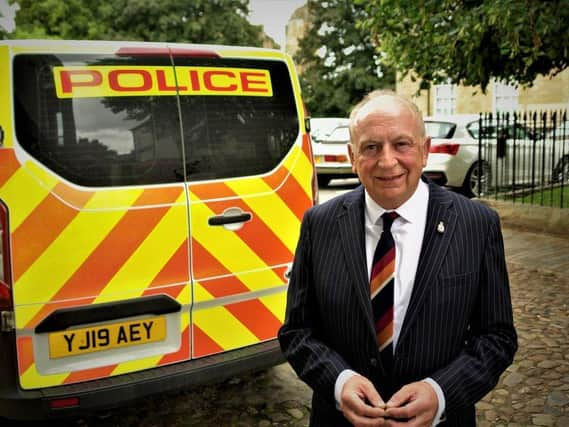Fresh calls for recall powers after North Yorkshire police commissioner Philip Allott resigns


The hundreds of complaints to his office, 10,000-strong petition and vote of no confidence by the county's Police, Fire and Crime Panel no doubt piled on the pressure for Mr Allott to go.
However, he could have - and intended to - stay in the job for four years until the next election despite the repeated calls for his resignation over the comments he made on the murder of Sarah Everard.
Advertisement
Hide AdAdvertisement
Hide AdMr Allott could have stayed as unlike MPs, there are no recall powers for police and crime commissioners (PCCs).
The absence of these powers has been described as a "weakness" in the laws governing the accountability of the role and the case of Mr Allott has now amplified calls for change.
Councillor Carl Les, chair of the North Yorkshire Police, Fire and Crime Panel, said there was frustration among members when last week's vote of no confidence did not mean Mr Allott had to quit.
He said the panel would now be writing to the Home Office asking for recall powers to be revisited.
Advertisement
Hide AdAdvertisement
Hide AdCouncillor Les, who is also leader of North Yorkshire County Council, said: "It seem perverse that a PCC has the power to sack a chief constable because of poor performance, but there isn't a power of recall for the PCC.
"These powers were put forward a number of years ago, but a general election got in the way and they never say the light of day again."
Draft legislation from 2014 exists and the government is currently consulting on recall powers for PCCs as part of a wider review into the role which holds the police to account.
Advertisement
Hide AdAdvertisement
Hide AdMarc Jones, chair of the Association of PCCs, said the body also supportive of introducing recall powers but added there should be "careful assessment of the risks and implications".
He said: "The process must be proportionate and recognise the very large areas that each PCC is elected to represent.
"Also, in the event of a PCC being removed from office, consideration would also need to be given as to how the PCC’s executive powers would be delivered until a new PCC was elected."
Mr Jones, who is the PCC for Lincolnshire, also said there is already a "very high bar" which must be met to stand as a PCC - "higher than there is for MPs and all other elected representatives."
Advertisement
Hide AdAdvertisement
Hide AdThe government review into PCCs launched last year and will make a series of recommendations to Home Secretary Priti Patel next month.
It was announced this week that voters in North Yorkshire will go to the polls on 25 November to elect a replacement for Mr Allott who had only been in post for five months having been elected in May.
Mr Allott had faced multiple calls to stand down since 1 October, when he told BBC Radio York women should be "streetwise" about powers of arrest, saying they should know "when they can be arrested and when they can't be arrested".
He made the comments after it emerged the Metropolitan Police officer who murdered Sarah Everard had used his warrant card to falsely arrest her for breaching coronavirus guidelines.
Police officer Wayne Couzens was given a rare whole life sentence for the kidnap, rape and murder of Ms Everard and will never be released from prison.
By Jacob Webster, Local Democracy Reporter